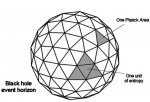As you may or may not have noticed (and if you haven't, just play along; it'll make me feel better), I've been posting a science link of the week every Wednesday over on the ESN Facebook wall. Facebook seems like a good place for some empirical experimentation; it provides a Wall against which to throw things to see if they stick. By its nature, it's a bit ephemeral. That's great if something doesn't work; before too long it drifts down the screen out of sight, and thus out of mind. But if something was … [Read more...] about Science in Review – October 2012
New Schedule and a New Way to Follow ESN
Today, we're announcing a few changes to the Emerging Scholars Blog: We're now going to post twice a week, with Mike posting on Tuesdays and Tom posting on Thursdays. For the time being, we're retiring the Friday Week in Review feature. Instead, we'll be sharing links throughout the week on the ESN Facebook page and on our shiny new ESN Twitter account. You heard me right: Twitter. ESN has now entered the 1st quarter of 2010. If you don't have Twitter, don't worry: the links on Facebook and Twitter are going … [Read more...] about New Schedule and a New Way to Follow ESN
Week in Review: Why Can’t We Be Friends? Edition
What are you reading, watching, thinking about this week? As usual, here's a few which have been on our mind. Let us know your thoughts on any/all of them. If you have items you'd like us to consider for the top five, add them in the comments or send them to Tom or Mike. 1. In the last Week in Review we kicked off with highlighting Seth Godin's take on the coming melt-down in higher education. Since then, the Chronicle of Higher Education thought Godin's piece was worth posting. That action, along with the … [Read more...] about Week in Review: Why Can’t We Be Friends? Edition
Abstaining from Social Media
As you begin a new term, what do you think about abstaining from social media? I had some friends who fasted from Facebook through Lent and according to Inside Higher Ed a professor offered a class extra credit if they stopped using social media during his course (see Extra Credit: Abstain from Facebook). How many took him up on the offer? 12 out of 35. How many succeeded? 6 out of 12. I wonder how he tracked and/or verified what I assume to be self-reporting. In what manner does social media help you get to … [Read more...] about Abstaining from Social Media
